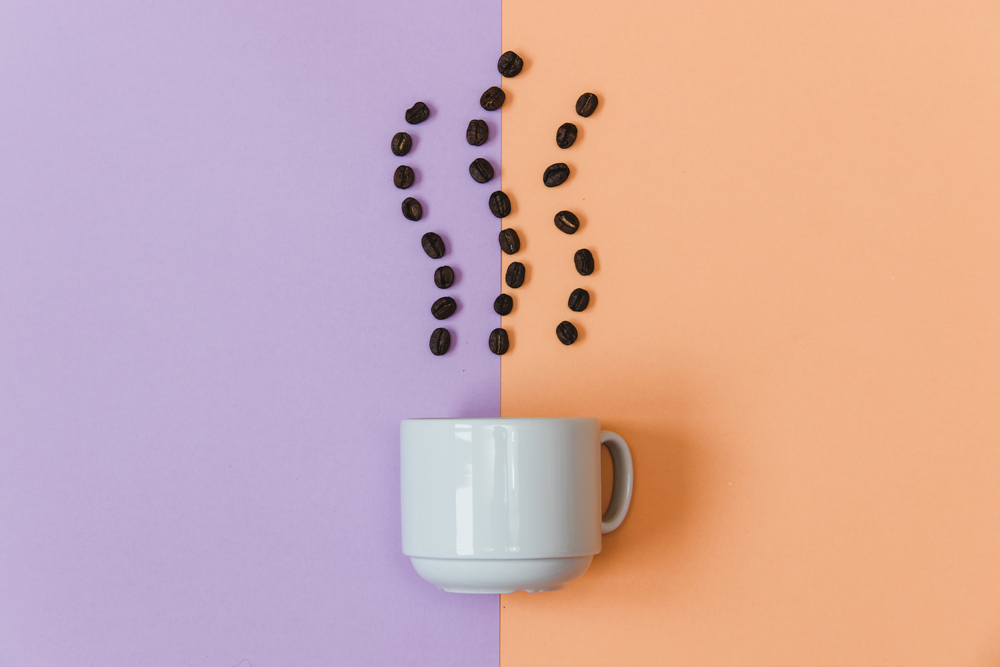We all know the situation too well. It’s morning, we’re on our way — rushing to the office, trying to get to the meeting on time — and so we have a cup of coffee from the local coffee shop in our hands. Or maybe it’s the late afternoon. After a long day of work or school, we need a cup of coffee to help us propel through another few hours of working or studying.
In the Western world, we all associate coffee with stimulation. Certainly, there may be some health benefits as well, at least in moderation. But we all know it to be an arousing or a stimulating beverage, as it gives us that “buzz,” or “psychological” lift that we are looking for. But can merely smelling coffee or seeing a picture of a coffee be enough to give you the buzz?
My research with Sam Maglio, Associate Professor of Marketing at the University of Toronto Scarborough, has recently demonstrated that the answer may be “yes.” Across four experiments with participants from Australia, Canada, and the United States, we found that exposure to coffee, without actually drinking it, and relative to exposure to tea, may be enough to increase heart rates, increase felt arousal, and give you the energy to focus more on immediate pressing tasks, thereby reducing your procrastination.
We also focused on how coffee cues, without actual ingestion, may change how you think. Thus, we were interested in something called “mental construal level,” which suggests that people can think and process information at a broad or a discrete level. For example, think of the action “sitting in class.” When you think about this behaviour, do you see yourself primarily “paying attention to the professor” or “sitting down physically on a chair?” The first is more abstract, focusing on the reasons why you would sit in class, but the second is more concrete, focusing on how you would sit in class. How you mentally represent any behaviour or activity can change how motivated you are in performing it. We found that coffee cues can lead to greater concrete thinking — and it is this focus on the actual activity that makes you more focused, allowing you to pay attention to details, instead of thinking more holistically, which can make you distracted.
Crucially, though, we only find these effects with participants from Western countries, namely Australia, Canada, and the United States. With participants from China, Japan, and Korea, there was no difference between coffee and tea cues on arousal or mental construal. In these countries, despite the growing influence of Western coffee trends (just think of the proliferation of Starbucks in China), tea is still the more dominant beverage. What this means is that it emphasizes the fact that our effects about exposure to coffee on arousal and thinking are psychological, and not physiological. Everyone, no matter where you are from, gets a buzz from coffee, because it’s caffeinated. But because the psychological link between coffee and arousal is stronger in the West, it explains why we find our effects primarily with individuals living in Australia, Canada, and the United States.
So, in short, even without drinking coffee, the beverage can give you the buzz that you are looking for. What this means is that the buzz you get from coffee can also be explained psychologically, not just physiologically. That is, the buzz you get from drinking coffee may come also from your thoughts and expectations about coffee, in addition to the actual amount of caffeine in the beverage.
What does this all mean? Does it mean that you can stop drinking coffee and still get the benefits?
Well, no. The effects that we find are short-term and definitely smaller in intensity than actually drinking coffee. You can’t get the buzz to last all day from seeing just a picture of coffee once. But what our findings do indicate is that we can get the buzz and focus we are looking for in more instances every day, at times when we’re not drinking coffee. We pass by coffee shops, we see ads for coffee, and the coffee maker sits around our kitchens and office spaces. Just these “cues” alone can be enough to give us the buzz that we crave so much.
What our research also means is that we need to better understand the “meanings” and “beliefs” we assign to foods and beverages. We believe and know coffee is a stimulating product, and so this belief or expectation alone drives the effects we found. Other research has shown that eating meat may make you feel a tad more masculine because meat is commonly seen as a “manly” product. In all these cases, we derive not just physiological benefits from the foods and beverages we consume, but also psychological benefits from what we believe or expect to happen from eating or drinking them.


